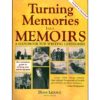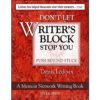
Courgeous Truth Telling — A Revolutionary Act
One of the most transformative statements an individual can make is courageous truth telling and objectivity. In a world where we are constantly being bombarded with subtle—and not so subtle—messages about who we ought to be, it is a bold statement to take a stand for personal authenticity.
“The telling of your stories is a revolutionary act.” — Sam Keen, writer
At its best, this is what a memoir is — a statement that declares “this is who I am, who I think of myself as being.”
Lest you think that courageous truth telling is only about revealing scandals and unmasking sexual abuse, let me assure you that it is more often about smaller issues. The issues more within the realm of the everyday experience. Perhaps you were never ambitious of worldly success. This has embarrassed you but you would like to make a statement for another set of values other than financial success. Or, perhaps you have been attracted to people of your own gender and would like to bear witness to that but still fear repercussions. Or, perhaps you were a parent but, if the truth be told, you and your children might have been better off if you had not parented. As you can see, “courageous telling the truth” need not be earth shattering, but it is about incredibly essential features of ourselves. [Free Membership required to read more. See below. ]
We'd love to have you access this content. It's in our members-only area, but you're in luck: becoming a member is easy and it's free.
Already a Member?
Not a Member Yet?

Should You Create an Outline or a Memory List for your Memoir?
DL: An outline or a Memory List? This is a perennial favorite with the search engines. I consider it to be a foundational post whose info can guide you to success. I hope you enjoy it.
A Memory List is far superior to an outline!
For some writers, there comes a moment in writing a memoir when the audacity of the undertaking hits them. Perhaps they think doorslammers like: “This can take forever.” “Writing a memoir will never pay for itself.” “I can’t afford to do this!” They reach for certainty. And that certainly if often a reversion to essay and report writing. They want an outline to assure the task gets done right. So, an outline or a Memory List?
The following is a comment to someone who asked in the Memoir Forum if she should create an outline and how to know when the page and chapters were the right length.
1. Do not write a memoir from an outline.
I do not write from an outline. Instead, I create a Memory List as outlined in Chapter 2 of Turning Memories Into Memoirs. The Memory List helps you to follow the promptings of the unconscious rather than the dictates of the conscious mind as happens with an outline. (An outline is great for an essay—”The Three Causes of the American Civil War”— but it is the death of an exploratory memoir.) So…
[Free Membership required to read more. See below. ]
We'd love to have you access this content. It's in our members-only area, but you're in luck: becoming a member is easy and it's free.
Already a Member?
Not a Member Yet?

Shaping Your Theme
It is important to spend some time shaping your theme as the theme is the message—the why—of your writing.
You imbue the whole of your story with your theme, and it, in turn, influences the choice of every element in your story—even when you’re not aware of it. In fact, all writing carries a message from the writer, an index of the motivation of the artist. Theme can be as broad as “There are good guys and bad guys, and you can tell them apart” and as subtle as “I want to tell others what it was like to live at a certain time of my life.”
[Free Membership required to read more. See below. ]
We'd love to have you access this content. It's in our members-only area, but you're in luck: becoming a member is easy and it's free.
Already a Member?
Not a Member Yet?

Facts Are Important in Memoir Writing
Facts are important in memoir writing. The inclusion of dates, addresses, names, and relationships, are one of its special features. Memoir writing cannot, without deleting from its value, omit dates and specific identification of locales, names of individuals and their relationships to one another. Memoir writing is factual writing: hence the importance of facts. A […]

Revealing Ourselves in a Memoir — 3 Reasons We Don’t Do It.
Why are we afraid of revealing ourselves in a memoir? While writing our stories, all of us, at one time or another, come against the fear of revealing too much of ourselves. The fear is founded—it’s not always a friendly world out there. And…
As we reveal too much about ourselves, we may be revealing too much about someone else.
But, excessive revealing is generally not the problem most memoir writers face. Revealing too little is a much more frequent problem for writers I coach or edit.
Often revealing ourselves in a memoir too little can come about because:
[Free Membership required to read more. See below. ]
We'd love to have you access this content. It's in our members-only area, but you're in luck: becoming a member is easy and it's free.
Already a Member?
Not a Member Yet?

Truth in Your Memoir – Three Tips For Including Safe “Guess-timates”
When writing a memoir or family history, you will inevitably come across bits of information that you want to include, but which you cannot verify…

2 Causes of Memoir Writer’s Block: Not Telling the Truth or Writing Unimportant Material
Many writers suffer from writer’s block, yet few understand—and much less resolve—its possible causes. There are a number of reasons that contribute to difficulty—especially blockage—in writing. In memoir writing, the infamous “writer’s block” can result from avoidance—that is, you don’t want to deal with uncomfortable material and so you “block.”

Memoir Interviewing: how to prepare for one and carry it off!
Memoir interviewing is an integral piece of research. Although you may assume you can depend on your memory when you write your lifestories—memory isn’t always as reliable as you want it to be. Interviews with relevant family members and friends can supplement your memory and broaden the perspective of your memoir.
Below are some notes on how to prepare for the best memoir interviewing you’ll ever undertake!
1) Select whom you will be memoir interviewing.
If your time is limited, or your family is large and offers many choices, it will be all the more important to identify a manageable number of knowledgeable relatives and friends to interview.
[Free Membership required to read more. See below. ]
We'd love to have you access this content. It's in our members-only area, but you're in luck: becoming a member is easy and it's free.
Already a Member?
Not a Member Yet?

The Wrong Point of View in a Memoir Can Throw the Story
In 1996 and 1997, I composed about 200 pages of a memoir of my high school years and then it wasn’t going anywhere more than where it had been—mired in facts and details with no spirit. What I didn’t know was it had a wrong point of view problem
I merely stored it in various computers for years.
In the fall of 2013, I completed my mother’s memoir (We Were Not Spoiled). Because I was looking for a writing project I might devote myself to next, I picked up the high-school memoir again.
(Lest you think that I went to a high school like yours, let me assure you that I did not. I attended a Catholic high-school seminary. No, I’m not writing about sexual shenanigans—there was none of that whatsoever. I am writing about my life there between 1960 and 1964 and how it shaped me. This theme of identity is usual stuff for a memoir, but the setting is exotic in many ways and not at all usual. Almost none of you who are reading this have “been there”—trust me.)
Suddenly, after more than a decade and a half, the memoir spoke to me again!
“Write me! Write me!” it shouted. The text seemed “alive” again. [Free Membership required to read more. See below. ]
